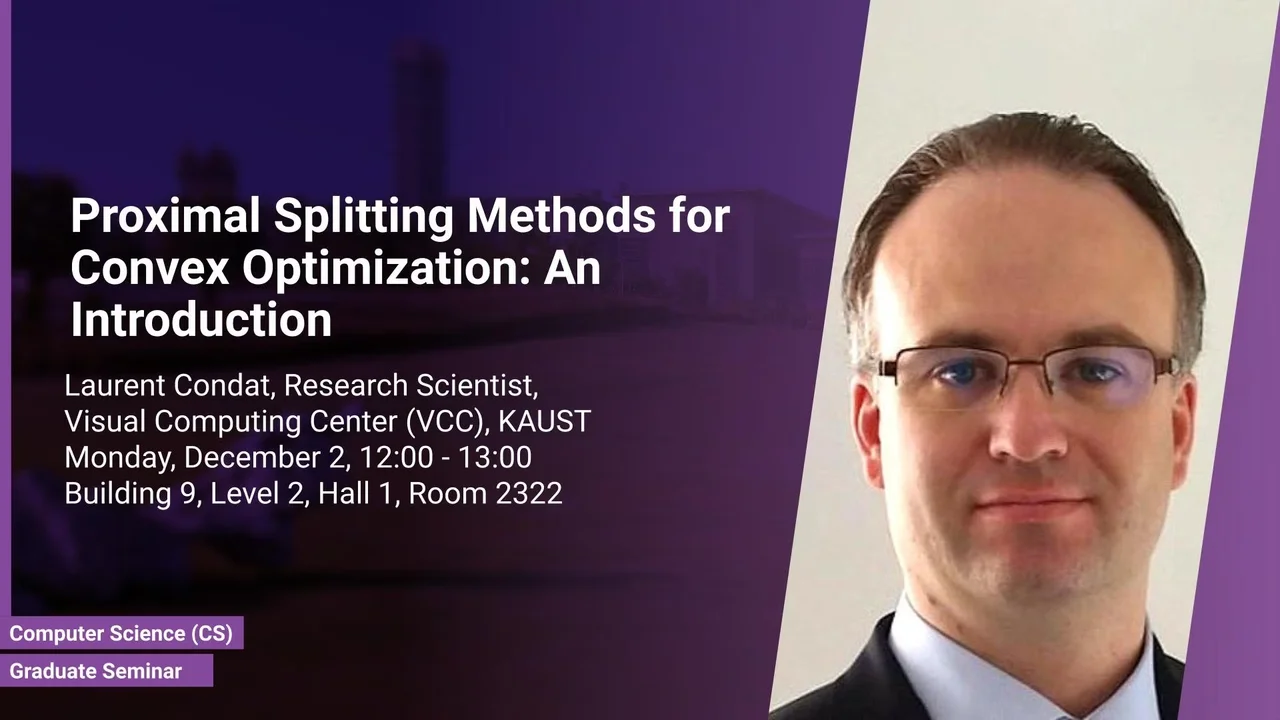
Proximal Splitting Methods for Convex Optimization: An Introduction
B9 L2 H1 R2322
This talk will be a gentle introduction to proximal splitting algorithms to minimize a sum of possibly nonsmooth convex functions. Several such algorithms date back to the 60s, but the last 10 years have seen the development of new primal-dual splitting algorithms, motivated by the need to solve large-scale problems in signal and image processing, machine learning, and more generally data science. No background will be necessary to attend the talk, whose goal is to present the intuitions behind this class of methods.
Overview
Abstract
This talk will be a gentle introduction to proximal splitting algorithms to minimize a sum of possibly nonsmooth convex functions. Several such algorithms date back to the 60s, but the last 10 years have seen the development of new primal-dual splitting algorithms, motivated by the need to solve large-scale problems in signal and image processing, machine learning, and more generally data science. No background will be necessary to attend the talk, whose goal is to present the intuitions behind this class of methods.
Brief Biography
Laurent Condat received a Master's degree in computer science from the graduate school ENSIMAG of Grenoble Institute of Technology and a MSc degree in applied mathematics from Univ. Joseph Fourier, Grenoble, France, both in 2003. He got a Ph.D. in applied mathematics from the Grenoble Institute of Technology in 2006. From 2006 to 2008, he was a postdoc in the Helmholtz Zentrum Muenchen in Munich, Germany. He was hired as a permanent researcher by the French National Center for Scientific Research (CNRS) in 2008. He spent 4 fours in the GREYC, Caen, and then 7 years in GIPSA-lab, Grenoble.
From 2016 to 2019, he was a member of the French National Committee for Scientific Research. Since Nov. 2019, he is a Research Scientist in the Visual Computing Center of KAUST.
Dr. Condat's area of interest includes convex optimization models and algorithms, and signal and image processing. He has co-authored more than 100 articles on these topics and he is a senior member of the IEEE. He received a best student paper award at the conference IEEE ICIP 2005 and a best Ph.D. award from Grenoble Institute of Technology in 2007.

